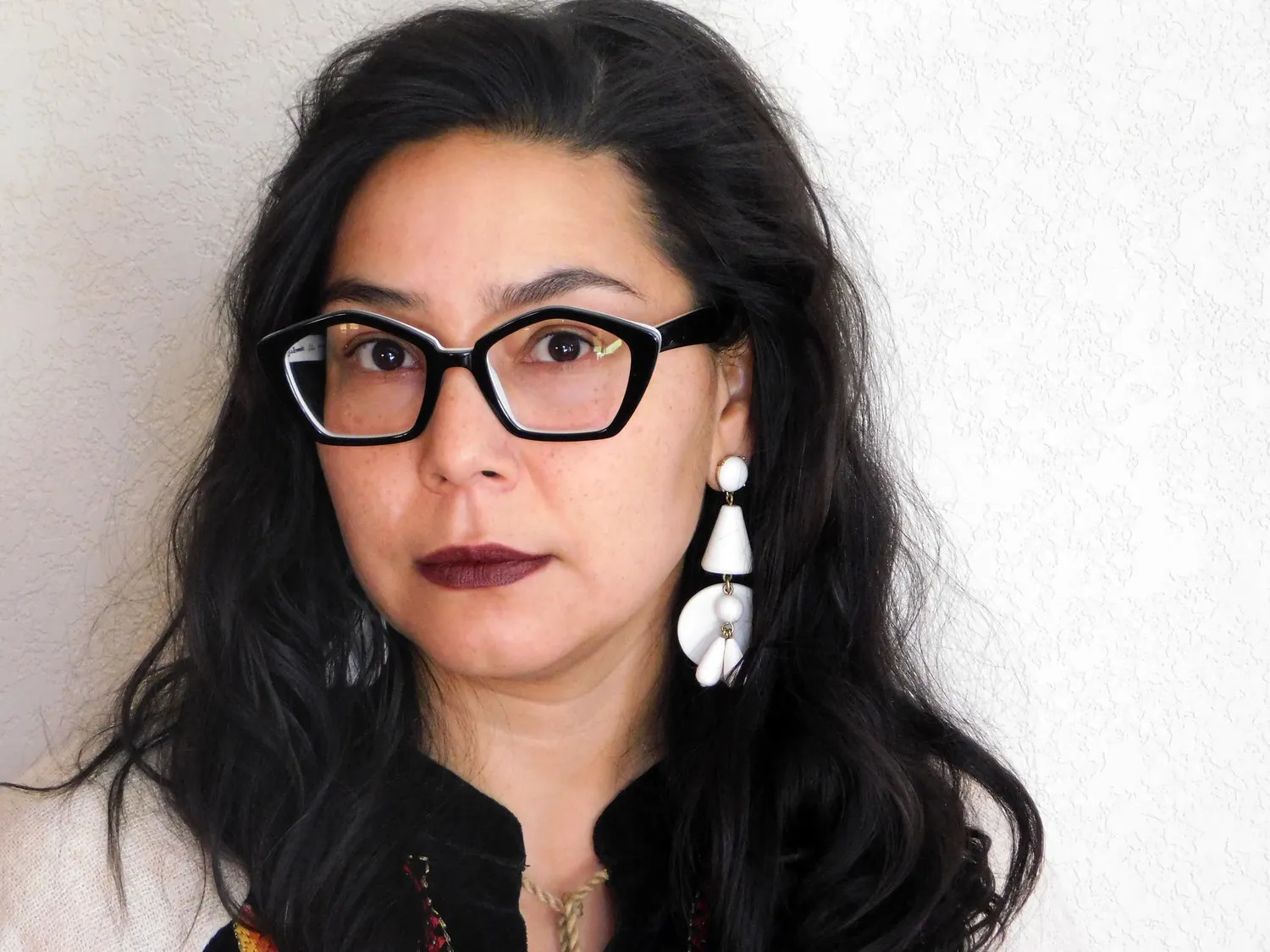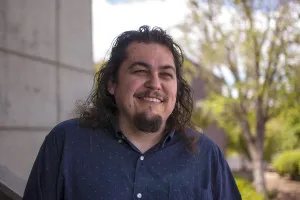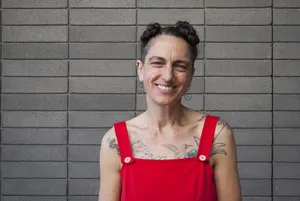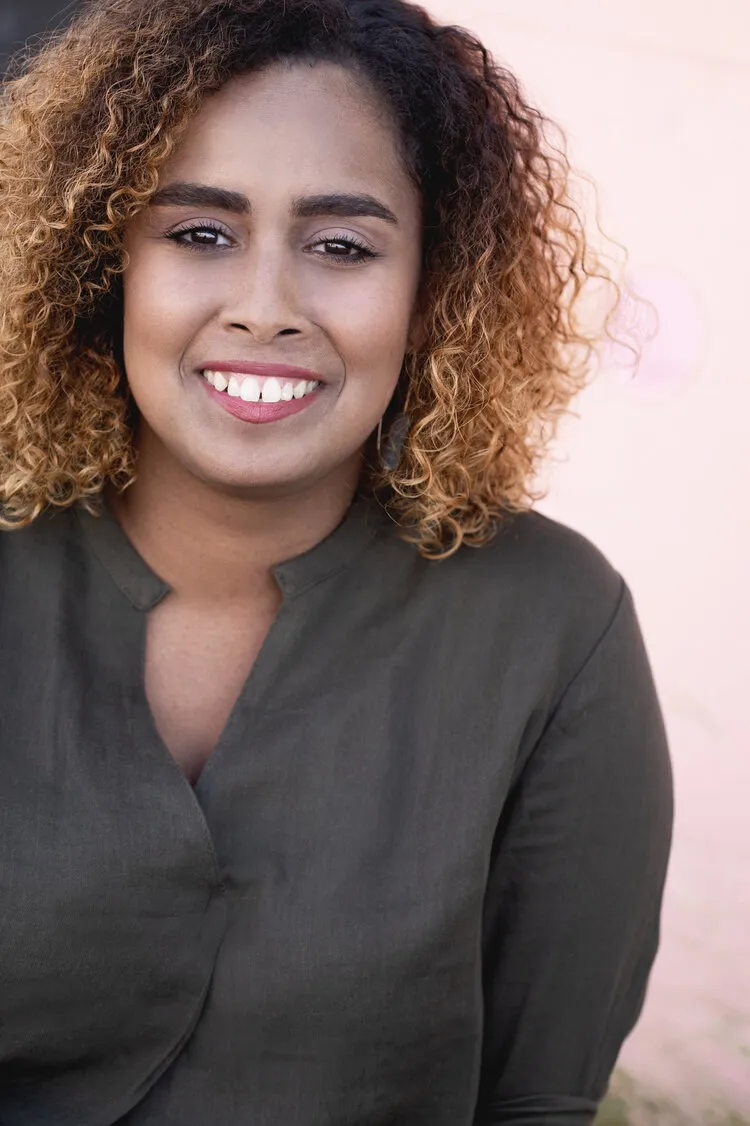AWARD
Graduate student recipients from University of Illinois at Chicago, University of Arizona and the University of Texas at El Paso will each receive $500 to attend and participate in roundtables, workshops and readings, and to work with:
- Former U.S. Poet Laureate Juan Felipe Herrera and Anthony Cody from the Laureate Lab Visual Wordist Studio at Fresno State University
- Felicia Rose Chavez, author of The Anti-Racist Writing Workshop
- Renowned poet, translator and language activist Jen/Eleana Hofer
- Renowned poet, playwright and community activist Jasminne Mendez
- PURPOSE: The Fellowship program will give students the opportunity to:
- Network with peers from other HSI institutions and professional writers
- Learn new creative writing pedagogical approaches
- Take workshops with renowned Latinx writers and teachers
- Develop anti-racist and innovative alternatives to traditional workshop model
- Write and share their work with an audience from the HSI consortium
DATES
- May 14, 2021: Roundtable on anti-racist and activist Creative Writing pedagogy with Juan Felipe Herrera, Anthony Cody, Felicia Rose Chavez, Jen/Eleana Hofer and Jasminne Mendez.
- May 21, 2021: Workshops led by Herrera, Cody, Chavez, Hofer, and Mendez. These workshops are intended to both generate new writing, and to introduce students to new pedagogical approaches.
- May 28, 2021: A public reading and roundtable given by the students who have participated in the workshops.
DEADLINE TO APPLY: April 2
FACULTY SPONSORS: Daniel Borzutzky (UIC), Susan Briante (Arizona), Farid Matuk (Arizona), Rosa Alcalá (UTEP)
ELIGIBILITY: All graduate students in Creative Writing or a related discipline are welcome to apply. We especially encourage applicants from traditionally underrepresented backgrounds.
Admission to the colloquium requires a commitment to attend all three events.
APPLICATION PROCESS
To apply, please send a single PDF (in English or Spanish) to hsifellows@gmail.com with the following:
- Cover page that includes only your name, address, phone number, email, institution and department, and genre
- Creative writing sample, not to exceed three pages
- Statement on academic experience, including teaching philosophy, academic experience, and interest in teaching (one page).
- Statement on innovative creative writing pedagogy. The end goal of this working group is to promote and expand the use of innovative, anti-racist creative writing pedagogy, specifically geared to students at HSI institutions. Describe what this kind of teaching looks like to you. (one page).
Applications should include your last name and first name in the name of the file. For questions, please contact the faculty sponsors at your campus. Applications will be accepted until April 2.

Felicia Rose Chavez is an award-winning educator with an MFA in Creative Nonfiction from the University of Iowa. She is author of The Anti-Racist Writing Workshop: How to Decolonize the Creative Classroom and co-editor of The BreakBeat Poets Volume 4: LatiNEXT with Willie Perdomo and Jose Olivarez. Felicia’s teaching career began in Chicago, where she served as Program Director to Young Chicago Authors and founded GirlSpeak, a feminist webzine for high school students. She went on to teach writing at the University of New Mexico, where she was distinguished as the Most Innovative Instructor of the Year; the University of Iowa, where she was distinguished as the Outstanding Instructor of the Year; and Colorado College, where she received the Theodore Roosevelt Collins Outstanding Faculty Award. Her creative scholarship earned her a Ronald E. McNair Fellowship, a University of Iowa Graduate Dean’s Fellowship, a Riley Scholar Fellowship, and a Hadley Creatives Fellowship. Originally from Albuquerque, New Mexico, she currently serves as Creativity and Innovation Scholar-in-Residence at Colorado College. For more information about The Anti-Racist Writing Workshop, and to access a multi-genre compilation of contemporary writers of color and progressive online publishing platforms, please visit www.antiracistworkshop.com.

Anthony Cody is the author of Borderland Apocrypha (Omnidawn, April 2020), winner of the 2018 Omnidawn Open Book Prize, a 2020 National Book Award Finalist in Poetry, a 2020 Poets & Writers debut poet, a 2020 Believer Magazine Editor’s longlist in Poetry nominee, a 2021 PEN/America Jean Stein Award finalist nominee, as well as winner of a 2020 Southwest Book Award (Border Regional Library Association). He is a CantoMundo fellow from Fresno, CA with lineage in both the Bracero Program and Dust Bowl. His poetry has appeared in Gulf Coast, Ninth Letter, The Academy of American: Poets Poem-a-Day Series, Prairie Schooner, TriQuarterly, among others. A recent MFA-Creative Writing graduate at Fresno State, he collaborates with Juan Felipe Herrera and the Laureate Lab Visual Wordist Studio and is an associate poetry editor for Noemi Press and poetry editor for Omnidawn. He currently teaches Ecopoetry at Fresno State.

Son of farmworkers, Juan Felipe Herrera lives in Fresno with his wife, poet, Margarita Robles. During the last fifty years, he has dedicated his life to poetry, community, art and teaching. In the last ten years, he has been the Poet Laureate of California and of the United States. Various awards include the National Book Critic’s Circle Award, Guggenheim Fellowship, LA Times Robert Kirsch Award, Latino Hall of Fame Award, Pushcart Prize, UCLA Chancellor’s Medal and UCRiverside Lifetime Award. With over thirty books in various genres, his recent work is Every Day We Get More Illegal (City Lights Publishers). He is a graduate of UCLA, Stanford, University of Iowa Writer’s Workshop. Currently, he coordinates the Laureate Lab Visual Wordist Studio at Fresno State.

Jen/Eleana Hofer is a poet, translator, social justice interpreter, teacher, facilitator, urban cyclist, and co-founder of the language justice and language experimentation collaborative Antena Aire (2010-2020) and the language justice collective Antena Los Ángeles (2014-2021). Eleana/Jen lives on unceded Tongva land at the confluence of the Los Angeles River and the Arroyo Seco in Northeast Los Angeles, where they teach writing, DIY bookmaking and literary translation, and support community groups in building equitable communication. They have received support in many forms from many entities, including CantoMundo, the Academy of American Poets, the City of Los Angeles, the NEA, and PEN American Center. They publish poems, translations, and visual-textual works with numerous small presses, including Action Books, Atelos, Counterpath Press, Kenning Editions, Ugly Duckling Presse, and in various DIY/DIT incarnations. Their translations of Uruguayan poet Virginia Lucas will be published in 2021 by Litmus Press. Between Language and Justice: Selected Writings from Antena Aire will be published in 2021 by The Operating System. Jen/Eleana identifies as a queer white Latinx/Argentinean Jewish BDS supporter who grew up mostly monolingual in a bilingual/bicultural family and finds in language justice work a powerful intersection between healing, social justice, and the transformative possibilities of language and radical listening across difference.

Jasminne Mendez is a Dominican-American poet, playwright, award-winning author and podcast host. She is the author of two poetry/prose collections: Island of Dreams (Floricanto Pres), Night-Blooming Jasmin(n)e: Personal Essays and Poetry (Arte Público Press). Her first full-length poetry collection, Machete, was a finalist for the Noemi Press Book Award for Poetry and is forthcoming as part of Noemi’s Akrilica Series in 2022. Her YA memoir A Bucket of Dirty Water: Memories of My Girlhood and her debut picture book Josefina’s Habichuelas (Arte Público Press) will be released in Fall 2021. Her work is included in the forthcoming YA Latinx Anthology Wild Tongues Can’t be Tamed (Flatiron, Macmillan), and in The BreakBeat Poets Vol 4: LatiNext (Haymarket Books).
CROSSING LATINIDADES
Crossing Latinidades is a new consortium of 16 Hispanic-Serving Institutions (HSIs) funded by a pilot grant from the Andrew W. Mellon Foundation. The purpose of the consortium is to build a framework for collaborative research, cultural programming, teaching, and archive sharing in the Latinx Humanities. Participating institutions have the R1 designation--- top-tier doctoral universities with high research activity –according to the Carnegie Classification of Institutions of Higher Education, and the Hispanic Association of Colleges and Universities (HACU).
Mellon HSI Consortium partners include:
- Graduate School and University Center of the City University of New York
- University of Arizona
- University of California, Irvine
- University of California, Riverside
- University of California, Santa Barbara
- University of California, Santa Cruz
- Florida International University
- University of Central Florida
- University of New Mexico
- University of Nevada, Las Vegas
- University of North Texas
- Texas Tech University
- University of Houston
- University of Texas, Arlington
- University of Texas, El Paso
- University of Illinois at Chicago

